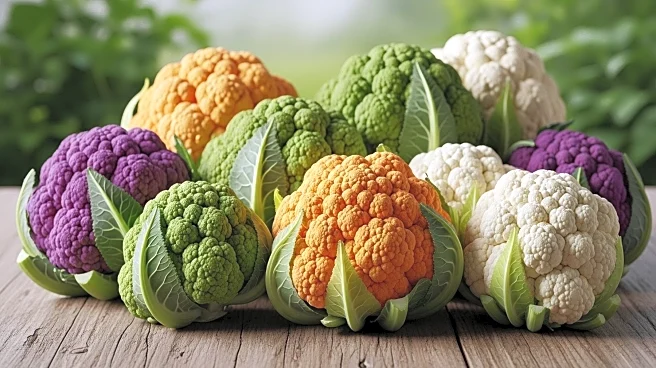What's Happening?
Pakistani farmers are increasingly adopting Chinese cauliflower seed varieties to combat the challenges posed by climate change. These seeds, known for their resilience and higher yield, have become a major export crop for China, enhancing the global competitiveness of Chinese seed companies. Farmers in Pakistan, like Muhammad Safdar, have experienced improved yields and financial independence by using these seeds, which are better suited to withstand extreme weather conditions.
Why It's Important?
The introduction of Chinese cauliflower seeds in Pakistan represents a significant shift in agricultural practices, offering farmers a solution to unpredictable weather patterns and declining yields of local varieties. This development not only boosts the income of farmers but also strengthens agricultural ties between China and Pakistan. The success of these seeds highlights the potential for international collaboration in addressing food security and climate resilience, benefiting both countries economically and socially.
What's Next?
Tianjin's cauliflower seed exports to Pakistan are expected to continue growing, with plans to expand cooperation under the Shanghai Cooperation Organization framework. This includes promoting high-quality seed varieties and advanced agricultural technologies to improve production capacity and ensure food security. The establishment of joint research laboratories could further adapt seeds to local climates, benefiting small farmers and enhancing agricultural sustainability.
Beyond the Headlines
The success of Chinese cauliflower seeds in Pakistan underscores the importance of science-driven cooperation in agriculture. By leveraging advanced seed technology, farmers can better adapt to climate change, secure their livelihoods, and contribute to a more sustainable future. This collaboration serves as a model for other countries facing similar challenges, demonstrating the transformative power of agricultural innovation.









